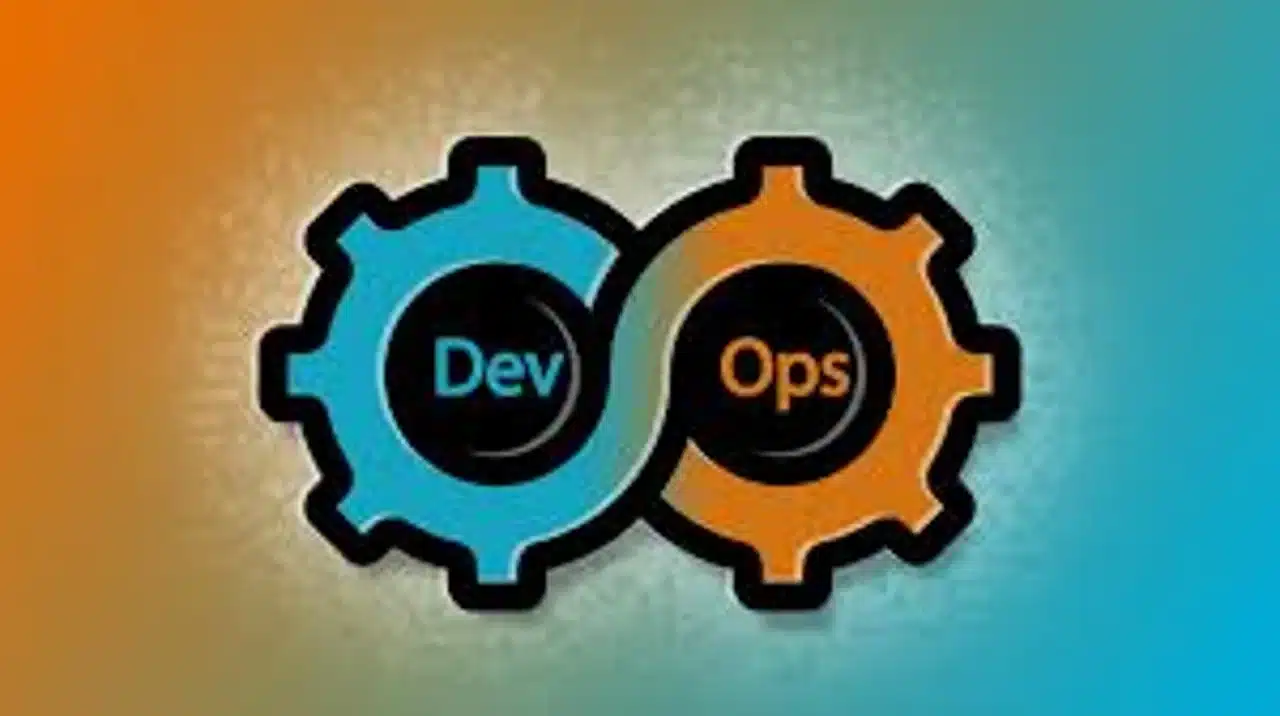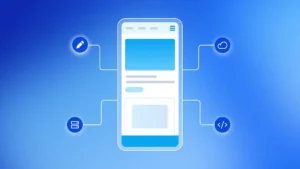AI-powered DevOps is revolutionizing software engineering by embedding artificial intelligence across the entire software development lifecycle. This integration enhances DevOps automation, continuous delivery, and predictive deployment, empowering agile engineering teams to deliver high-quality software faster and more efficiently. With intelligent monitoring and ML-driven software development becoming standard, organizations can anticipate issues, optimize workflows, and accelerate innovation. This article explores the evolution, latest tools, advanced tactics, and real-world successes of AI-powered DevOps, while highlighting why Amquest Education’s Software Engineering, Agentic AI and Generative AI Course in Mumbai offers the leading AI-powered learning experience for mastering this transformative domain.
The Evolution of AI-Powered DevOps
DevOps initially focused on bridging development and operations to improve collaboration and accelerate software delivery. However, as systems grew more complex and release cycles shortened, manual processes and static automation showed their limitations. AI-powered DevOps emerged by leveraging machine learning, data analytics, and intelligent automation to revolutionize software build, test, deployment, and monitoring. By embedding AI into DevOps pipelines, teams automate repetitive tasks like code testing and deployment, predict and prevent failures, and dynamically allocate resources. This shift transforms DevOps from reactive operations into proactive, predictive engineering, reducing downtime, improving reliability, and optimizing costs.
Latest Features, Tools, and Trends in AI-Powered DevOps
The AI-powered DevOps ecosystem is rapidly expanding with tools that seamlessly integrate into existing workflows, enhancing automation and insight:
| Feature / Tool | Description | Example Platforms |
|---|---|---|
| Automated CI/CD Pipelines | AI-driven automation of build, test, and deployment to accelerate delivery and reduce errors | Jenkins X, Harness |
| Predictive Deployment | ML models forecast potential failures or bottlenecks before impacting users | Harness, Digital.ai |
| Intelligent Monitoring | Real-time anomaly detection and root cause analysis via AI observability tools | Dynatrace, Spacelift |
| AI-Driven Incident Response | Automated detection and remediation of incidents to minimize downtime | Digital.ai, Qovery AI DevOps Copilot |
| Code Quality and Security | AI analyzes code for bugs, vulnerabilities, and style issues, improving software quality | GitLab AI integrations, SonarQube AI |
These tools not only accelerate the software delivery lifecycle but also improve collaboration by providing actionable insights and automating complex workflows. Increasingly, AI is integrated into security and compliance checks, forming a bridge between DevOps and DevSecOps to ensure secure, reliable releases.
Advanced Tactics for Success with AI-Powered DevOps
To fully leverage AI-powered DevOps, organizations should adopt advanced strategies beyond basic automation:
- Predictive Engineering: Use AI to simulate user behavior, system loads, and architecture performance early in the design phase. This proactive approach reduces costly rework and ensures scalability and stability.
- AI-Augmented Developer Productivity: Empower developers to review and fine-tune AI-generated code, treating AI as a collaborative co-engineer. This requires upskilling teams and fostering a culture of continuous learning and accountability.
- Multi-Cloud and Multi-Region Automation: Automate CI/CD pipelines across diverse cloud environments to support global scale, redundancy, and reduce manual overhead.
- Integrate AI in Security and Compliance: Embed AI-driven security validations into pipelines, automating governance without slowing delivery.
- Resource Optimization with AI: Dynamically allocate cloud resources based on predictive workload analytics to optimize costs and performance.
- Incident Response Automation: Deploy AI tools that detect, diagnose, and remediate incidents automatically to minimize downtime and operational impact.
These tactics enable faster time-to-market, higher software quality, and alignment with business goals.
Challenges and Best Practices in AI-Powered DevOps
While AI-powered DevOps offers transformative benefits, successful adoption requires addressing key challenges:
- Maintaining Human Oversight: AI amplifies human judgment but does not replace it. Continuous supervision ensures AI-driven decisions remain aligned with business objectives and ethical standards.
- Data Quality and Security: AI models depend on high-quality, representative data. Organizations must ensure data integrity and secure handling to avoid unreliable predictions.
- Transparency and Accountability: Traceability and auditability of AI decisions are critical to maintain trust and compliance, especially in regulated industries.
- Change Management and Culture: Upskilling teams and fostering collaboration between development, operations, security, and AI specialists are essential for integration success.
Addressing these considerations mitigates risks and enhances the value derived from AI-powered DevOps.
The Power of Community, Content, and Storytelling
Building an active community around AI-powered DevOps accelerates knowledge sharing and innovation. Storytelling through case studies, blogs, and webinars disseminates best practices and lessons learned. Communities of practice enable practitioners to exchange ideas on emerging AI tools, troubleshoot collaboratively, and contribute to open-source projects. This collective intelligence fosters continuous improvement and keeps organizations ahead in this rapidly evolving field.
Measuring Success: Analytics and Insights in AI-Powered DevOps
Effective measurement validates AI-driven improvements. Key performance indicators include:
- Deployment Frequency: Frequency of code releases to production.
- Change Lead Time: Time from code commit to deployment.
- Mean Time to Recovery (MTTR): Speed of recovery from failures.
- Change Failure Rate: Percentage of deployments causing failures.
- Resource Utilization and Cost Savings: Efficiency gains from AI-driven optimization.
AI platforms provide real-time dashboards and predictive analytics to monitor these KPIs, identify bottlenecks, and continuously refine DevOps processes.
Business Case Study: Harnessing AI-Powered DevOps at Scale
Client: Global Financial Services Firm
Challenge: Accelerate software releases while ensuring security and compliance for critical banking applications. Manual CI/CD pipelines were slow and error-prone, causing delays and costly outages.
Solutions Implemented:
- Adopted Harness AI-powered continuous delivery for automated multi-cloud pipeline orchestration.
- Integrated AI-driven predictive analytics to detect deployment risks pre-production.
- Leveraged Dynatrace for intelligent monitoring with real-time anomaly detection and root cause analysis.
Outcomes:
- Deployment frequency increased by 3x, enabling faster feature delivery.
- MTTR reduced by 60%, significantly minimizing downtime.
- Security compliance automation cut manual audit efforts by 40%.
- Operational costs decreased by 25% due to optimized resource use.
This case illustrates how AI-powered DevOps fuses automation, intelligence, and agility to transform enterprise software engineering.
Why Choose the Software Engineering, Agentic AI and Generative AI Course?
Amquest Mumbai offers a uniquely comprehensive program designed for engineers, architects, and technology leaders seeking mastery in AI-powered DevOps. Key strengths include:
- AI-Led Curriculum: Covers agentic AI and generative AI techniques applied to software engineering and DevOps automation, ensuring learners acquire cutting-edge skills aligned with industry needs.
- Hands-On Learning: Real-world projects simulate AI-driven CI/CD pipelines, predictive deployment, and intelligent monitoring, bridging theory and practice.
- Experienced Faculty: Industry experts with deep AI and software engineering backgrounds guide students through complex concepts and applications.
- Internship and Placement Support: Strong partnerships with leading tech firms in Mumbai and nationally provide valuable career opportunities.
- Flexible Delivery: Available onsite in Mumbai and online nationwide to accommodate diverse learners.
This course uniquely equips professionals to lead the future of automated software engineering with AI-powered DevOps.
Actionable Tips for Technology Leaders and Marketers
- Start Small, Scale Fast: Pilot AI-powered automation in select DevOps workflows, learn from outcomes, then expand.
- Invest in Upskilling: Train DevOps teams in AI and ML concepts to maximize tool effectiveness.
- Integrate AI Across the Pipeline: Ensure AI capabilities span code quality, deployment, monitoring, and incident response.
- Foster Collaboration: Promote communication between development, operations, security, and AI teams for smooth integration.
- Measure and Iterate: Use AI-driven analytics to continuously monitor efficiency and software quality, adapting strategies proactively.
Conclusion
AI-powered DevOps is no longer a futuristic vision but an actionable reality transforming software engineering. By harnessing AI for automation, predictive deployment, and intelligent monitoring, organizations gain speed, quality, and agility in software delivery. For professionals aiming to lead this transformation, Amquest Mumbai’s Software Engineering, Agentic AI and Generative AI Course offers the most comprehensive and practical education. With expert faculty, hands-on projects, and strong industry connections, it is the premier choice to master AI-powered DevOps and shape the future of automated software engineering.
FAQs
Q1: What is AI-powered DevOps?
AI-powered DevOps integrates artificial intelligence and machine learning into DevOps processes to automate workflows, predict issues, and optimize software delivery from development through deployment and monitoring.
Q2: How does DevOps automation benefit software development?
DevOps automation reduces manual effort, minimizes errors, speeds continuous integration and delivery, and improves collaboration, enabling faster and more reliable software releases.
Q3: What role does predictive deployment play in AI-powered DevOps?
Predictive deployment uses AI to forecast potential failures or bottlenecks before they impact users, allowing teams to proactively address issues for smoother releases.
Q4: How can ML-driven software development improve code quality?
Machine learning models analyze code for bugs, vulnerabilities, and style inconsistencies, helping developers maintain high standards and reduce technical debt.
Q5: What is intelligent monitoring in AI-powered DevOps?
Intelligent monitoring leverages AI to detect anomalies in application or infrastructure performance in real-time, providing early warnings and root cause analysis to prevent downtime.
Q6: Why is the Software Engineering, Agentic AI and Generative AI Course ideal for mastering AI-powered DevOps?
This course combines AI-led modules on agentic and generative AI, hands-on learning, expert faculty, and strong industry partnerships offering internships and placements, uniquely preparing learners for advanced AI-powered DevOps roles.







